Haomin Zhou

- Algorithms & Optimizations
- Machine Learning

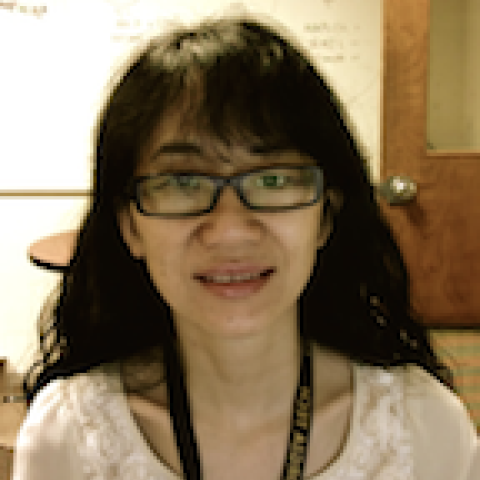

Vigor Yang earned his Ph.D. from the California Institute of Technology in 1984. After serving for one year as a research fellow in Jet Propulsion at Caltech, he joined the Pennsylvania State University in August 1985, becoming the John L. and Genevieve H. McCain Chair in Engineering in 2006. In 2009, he began his tenure as the William R.T. Oakes Professor Chair at the Daniel Guggenheim School of Aerospace Engineering at the Georgia Tech. He retired from the chair position and returned to teaching and research in August of 2018
Yang’s research encompasses a wide spectrum of topics, including (1) data-enabled design and data science; (2) combustion dynamics in propulsion and power-generation systems;(3) multi-fidelity modeling and simulations of fluid flows and combustion; (4) combustion of energetic materials; (5) high-pressure transport phenomena, thermodynamics and combustion, and (6) nano technologies for propulsion and energetic applications. He has established, as the principal or co-principal investigator, more than 70 research projects, including nine (9) DoD-MURI projects. He has published 10 comprehensive volumes and numerous technical papers on combustion, propulsion, energetics, and data science. He was the recipient of the Air-Breathing Propulsion Award (2005), the Pendray Aerospace Literature Award (2008), the Propellants and Combustion Award (2009), and the von Karman Lectureship in Astronautics Award (2016) from the American Institute of Aeronautics and Astronautics (AIAA); the Worcester Reed Warner Medal (2014) from the American Society of Mechanical Engineers (ASME); and the Lifetime Achievement Award (2014) from the Joint Army, Navy, NASA, and Air Force (JANNAF) Interagency Propulsion Committee.
Yang was the editor-in-chief of the AIAA Journal of Propulsion and Power (2001-2009) and the JANNAF Journal of Propulsion and Energetics (2009-2012). He is currently a co-editor of the Aerospace Book Series of the Cambridge University Press (2010-). He serves, or has served, on a large number of steering committees and review/advisory boards for government agencies and universities in the U.S. and abroad. A member of the U.S. National Academy of Engineering and an academician of Academia Sinica, Dr. Yang is a fellow of the AIAA, ASME, and Royal Aeronautical Society (RAeS).
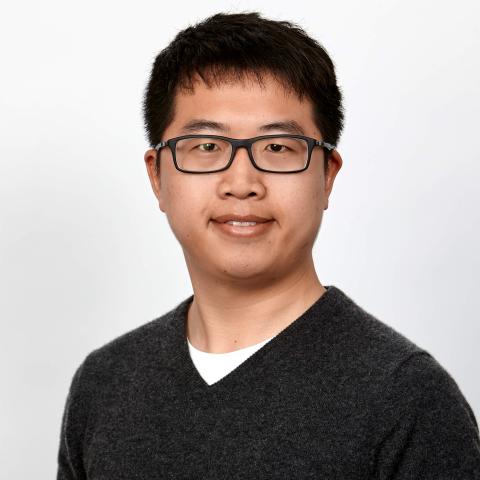
I am an assistant professor in the School of Interactive Computing at Georgia Tech. Before joining Georgia Tech, I spent two wonderful years at Virginia Tech as a faculty member. Prior to this, I was a postdoctoral fellow in the Visual Computing Group at Harvard University, and received my Ph.D. from Human-Centred Computing Department, Monash University, Australia.
My research encompasses a wide range of topics within the fields of Visualization (VIS), VR/AR, and Human-Computer Interaction (HCI). I actively contribute to these communities and regularly publish my work in leading venues such as IEEE VIS, ACM CHI, IEEE TVCG, EuroVis, and IEEE VR. I am honored to have received three best paper honorable mention awards, notably from IEEE VIS in 2016 and 2022, as well as ACM CHI in 2021. I also serve as a program committee member for several prestigious conferences in my fields, including IEEE VIS 2022/23/24, ACM CHI 2023/24, and IEEE VR 2022/23/24.
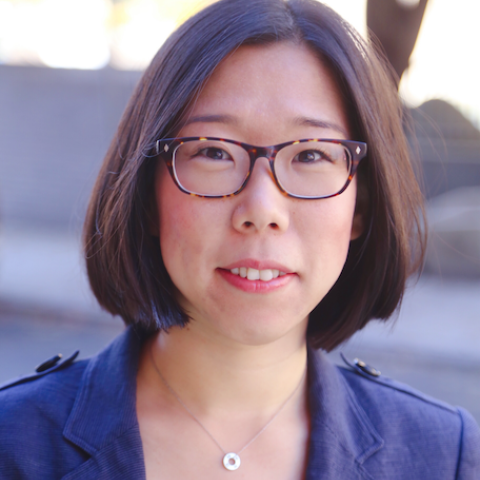
Wei Xu is an associate professor in the School of Interactive Computing at the Georgia Institute of Technology. Xu received her Ph.D. in Computer Science from New York University, and her B.S. and M.S. from Tsinghua University. Her research interests are in natural language processing, machine learning, and social media. Her recent work focuses on text generation, stylistics, information extraction, robustness and controllability of machine learning models, and reading and writing assistive technology. She is a recipient of the NSF CAREER Award, CrowdFlower AI for Everyone Award, Criteo Faculty Research Award, and Best Paper Award at COLING'18. She has also received funds from DARPA and IARPA and is part of the Machine Learning Center and NSF AI CARING Institute at Georgia Tech.
Social Media
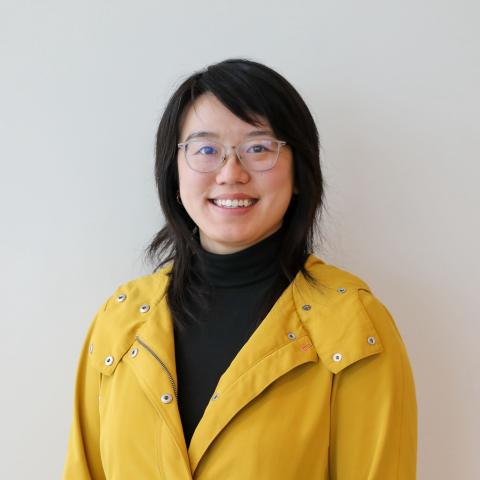
Helen Xu comes to Georgia Tech from Lawrence Berkeley National Laboratory where she was the 2022 Grace Hopper Postdoctoral Scholar. She completed her Ph.D. at MIT in 2022 with Professor Charles E. Leiserson. Her main research interests are in parallel and cache-friendly algorithms and data structures. Her work has previously been supported by a National Physical Sciences Consortium fellowship and a Chateaubriand fellowship. She has interned at Microsoft Research, NVIDIA Research, and Sandia National Laboratories.
Parallel ComputingCache-Efficient AlgorithmsPerformance Engineering
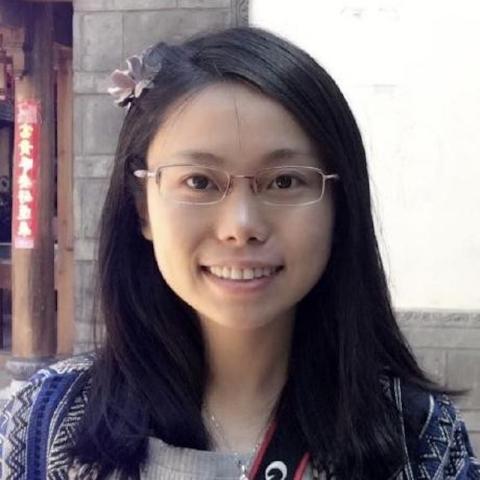
Anqi Wu is an Assistant Professor at the School of Computational Science and Engineering (CSE), Georgia Institute of Technology. She was a Postdoctoral Research Fellow at the Center for Theoretical Neuroscience, the Zuckerman Mind Brain Behavior Institute, Columbia University. She received her Ph.D. degree in Computational and Quantitative Neuroscience and a graduate certificate in Statistics and Machine Learning from Princeton University. Anqi was selected for the 2018 MIT Rising Star in EECS, 2022 DARPA Riser, and 2023 Alfred P. Sloan Fellow. Her research interest is to develop scientifically-motivated Bayesian statistical models to characterize structure in neural data and behavior data in the interdisciplinary field of machine learning and computational neuroscience. She has a general interest in building data-driven models to promote both animal and human studies in the system and cognitive neuroscience.
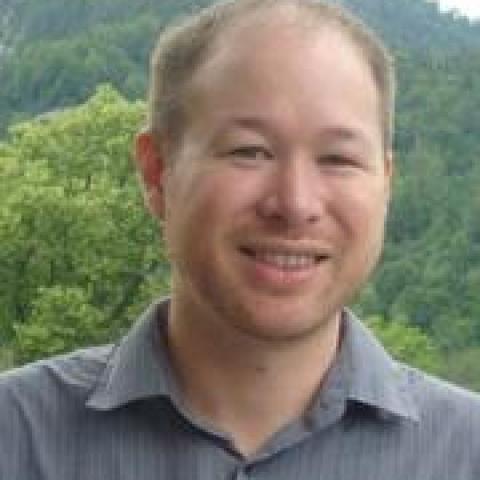
Professor John Wise uses numerical simulations to study the formation and evolution of galaxies and their black holes. He is one of the lead developers of the community-driven, open-source astrophysics code Enzo and has vast experience running state-of-the-art simulations on the world’s largest supercomputers. He received his B.S. in Physics from the Georgia Institute of Technology in 2001. He then studied at Stanford University, where he received his Ph.D. in Physics in 2007. He went on to work at NASA’s Goddard Space Flight Center just outside of Washington, DC as a NASA Postdoctoral Fellow. Then in 2009, he was awarded the prestigious Hubble Fellowship which he took to Princeton University before arriving at Georgia Tech in 2011, coming back home after ten years roaming the nation.
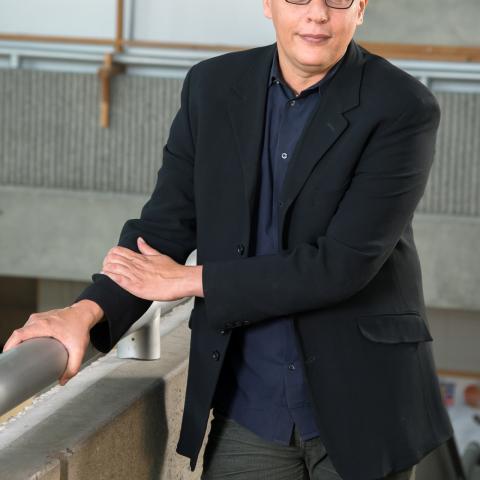
Gil Weinberg is a professor and the founding director of Georgia Tech Center for Music Technology, where he leads the Robotic Musicianship group. His research focuses on developing artificial creativity and musical expression for robots and augmented humans. Among his projects are a marimba playing robotic musician called Shimon that uses machine learning for Jazz improvisation, and a prosthetic robotic arm for amputees that restores and enhances human drumming abilities. Weinberg presented his work worldwide in venues such as The Kennedy Center, The World Economic Forum, Ars Electronica, Smithsonian Cooper-Hewitt Museum, SIGGRAPH, TED-Ed, DLD and others. His music was performed with Orchestras such as Deutsches Symphonie-Orchester Berlin, the National Irish Symphony Orchestra, and the Scottish BBC Symphony while his research has been disseminated through numerous journal articles and patents. Dr. Weinberg received his MS and Ph.D. degrees in Media Arts and Sciences from MIT and his BA from the interdisciplinary program for fostering excellence in Tel Aviv University.
Music Technology; Computer Music; Robotics; Developing Artificial Creativity and Musical Expression for Robots and Augmented Humans
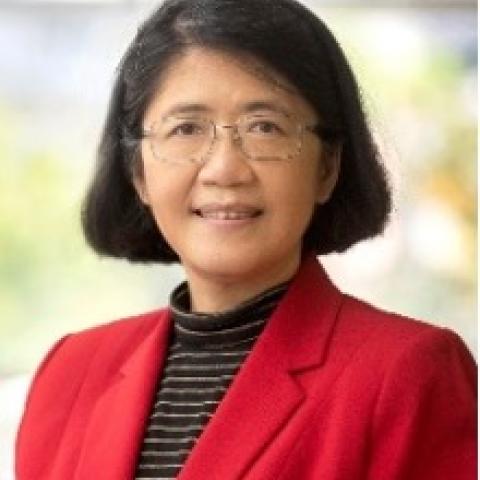
May Dongmei Wang, Ph.D., is The Wallace H Coulter Distinguished Faculty Fellow, professor of BME, ECE and CSE, Director of Biomedical Big Data Initiative, and Georgia Distinguished Cancer Scholar. She is also Petit Institute Faculty Fellow, Kavli Fellow, Fellow of AIMBE, Fellow of IEEE, and Fellow of IAMBE. She received BEng from Tsinghua University China and MS/PhD from Georgia Institute of Technology (GIT). Dr. Wang’s research and teaching are in Biomedical Big Data and AI-Driven Biomedical Health Informatics and Intelligent Reality (IR) for predictive, personalized, and precision health. She has published over 270 referred journal and conference proceeding articles (13,500+ GS-Citations) and delivered over 280 invited and keynote lectures. Dr. Wang’s research has been supported by NIH, NSF, CDC, GRA, GCC, VA, Children’s Healthcare of Atlanta, Enduring Heart Foundation, Wallace Coulter Foundation, Carol Ann and David Flanagan Foundation, Shriner’s Hospitals, Microsoft Research, HP, UCB, and Amazon.
Dr. Wang chairs IEEE Engineering in Medicine and Biology Society (EMBS) BHI-Technical Community and ACM Special Interest Group in Bioinformatics (SIGBio), and is the Senior Editor of IEEE Journal of Biomedical & Health Informatics (IF=7.02), and Associate Editor for IEEE Transactions on BME, and IEEE Review of BME. She was IEEE EMBS Distinguished Lecturer and PNAS (Proceeding of National Academy of Sciences) Emerging Area Editor. During the past decade, Dr. Wang has been a standing panelist for NIH Study Sections, NSF Smart and Connect Health, and Brain Canada, and has co-chaired and helped organize more than 10 conferences by IEEE Engineering in Medicine and Biologics Gordon Research Conferences, ACM Special Interest Groups in Bioinformatics, and IEEE Future Directions.
Dr. Wang received GIT Outstanding Faculty Mentor for Undergrad Research Award and Emory University MilliPub Award for a high-impact paper cited over 1,000 times. She was selected into 2022 Georgia Tech LeadingWomen Program and 2021 Georgia Tech Provost Emerging Leaders Program. Previously, she was Carol Ann and David Flanagan Distinguished Faculty Fellow, GIT Biomedical Informatics Program Co-Director in ACTSI, and Bioinformatics and Biocomputing Core Director in NIH/NCI-Sponsored U54 Center for Cancer Nanotechnology Excellence.